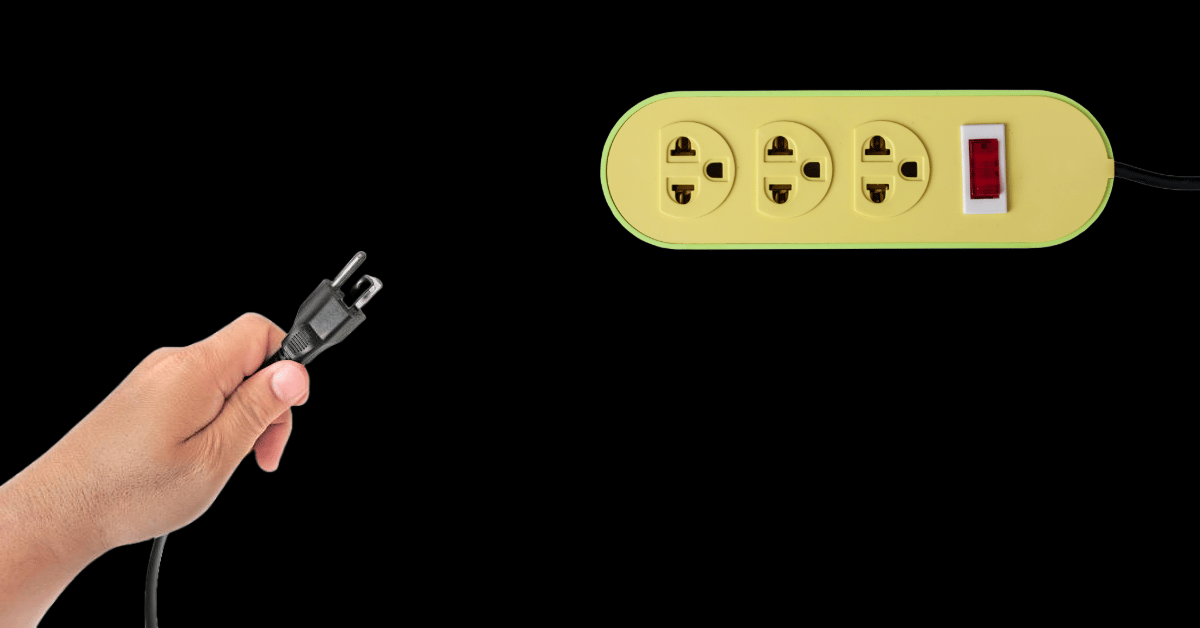
The internet has a glazing problem. And I’m not talking about donuts.
Look, I get it, some creators glaze because they’re genuinely excited about something, whether it be a product launch, an exclusive drop, or the Nashville Hot Mozzarella Sticks from Chili’s that haunt my dreams because I can’t try them on my tiny island on the other side of the world. In these cases, justified. But I’ve started to notice that most creators glaze because they’ve learned it is the fastest, safest way to get attention. And honestly, it’s getting very tired.
-Sophie Randell, Writer
Gifting doesn't have to be hard
We've all been there—unwrapped another pair of socks, scented candle, or generic mug—and forced a polite smile.
But what if there was a way to not just get what you'd really like for the holidays, but make buying gifts for others more meaningful, too?
OnShout is a new social wishlist platform that takes the guesswork out of gifting.
Now, it's easy to:
📋Build a wishlist in minutes
🤳🏼Share what you want with friends & family
🎁Contribute to gifts your loved ones actually want, too
No more "thanks, I love it" while inwardly sighing. Gifting just became simple (finally) 👇
WHAT’S HAPPENING IN MARKETING TODAY?
Joe Rogan Subreddit sends mixed signals, AI erotic content features real women’s faces & No one knows who to blame when AI’s wrong

Lol. Always with the free speech this crowd is. In the r/JoeRogan subreddit, moderators recently announced a ban on all posts about politics, while… still permitting political comments…?
The move is twisting in the wind: on one hand, the subreddit was flooded with agenda-driven posts. On the other, it continues hosting Rogan’s politicised podcast content which literally include guests like Trump. I smell hypocrisy. The timing is also convenient. Just as thousands of entries from the Jeffrey Epstein file dump are surfacing and Rogan’s ties to those narratives are under scrutiny, this feels more about reputation-covering than genuine moderation.
The subreddit claims it just “isn’t the place for politics anymore." Yet it appears embroiled in politics by the very act of policing it.
Of course instances like this disproportionately affect women and women only. This is one of the darker and absolutely more dangerous corners of AI. The erotic role-play chatbot and image-generation platform SecretDesires.ai left cloud-storage containers wide open. This exposed nearly two million images and videos. Many of these were of random women who never asked to become scene partners in AI-generated hardcore porn.
The data includes original photos (workplace snapshots, vacation selfies, yearbook pics). It also depicts explicit AI-generated content placing those people in sexual scenarios without consent. It actually makes my stomach turn to think about it. This is more than a “nudify” app leak; it’s a wake-up call. The tech is being used for face-swaps and deep fantasies at scale. And the platform’s failure to properly secure those assets means people’s likenesses turned into sexual content without permission. It’s alarming, and it’s very real.
Speaking of which, who pays when A.I. is wrong?
The rapid expansion of generative AI has brought a suitcase of legal headaches. False statements fabricated by systems like chatbots are now spawning defamation lawsuits. And courts are scrambling to define who’s accountable. For instance, companies claim their reputations were shredded after AI models falsely linked them to lawsuits or crimes.
Now they’re suing firms such as OpenAI, Google and others. The traditional tort of defamation (libel/slander) is being dragged into the AI age. But adapting the legal rules isn’t trivial because AI lacks intent, human oversight is inconsistent and identifying “the publisher” is messy.
Expect this to matter for marketers and brand owners alike. As AI becomes author-adjacent, misstatements carry real reputational risk… and someone’s going to pay. I just hope the women used in SecretDesires.ai get justice.
-Sophie Randell, Writer
DEEP DIVE
When everything's "iconic" and "life-changing," nothing actually is

The glazing strategy is simple: praise something so intensely and so theatrically that people have to stop scrolling.
It is the “literally insane,” “literally genius,” “literally changed my life” school of communication. Where the enthusiasm is loud enough that no one notices the substance is thin as your ex’s hair on the top of his head (his hairline has 3 years, max. You paid the right Etsy witch.)
None of it is literal. All of it is emotional inflation.
Glazing feels like a small, insignificant behaviour. But it's actually a window into how online authority is now manufactured.
When a creator goes overboard with praise for another founder, another product, another drop, it’s not a case of them randomly deciding to be super nice and cheerful toward someone/ something. It’s a case of them borrowing credibility.
Declaring something “next level” signals that you have the taste to recognise greatness and the proximity to speak on it. In that sense, glazing is not really about the thing at all. It is about the person doing the praising.
This is only possible because social media has collapsed the distance between expertise and, well, for lack of a better word, vibes.
In the old world, someone needed credentials to label a product innovative or a thinker brilliant. That’s why we have food critics and film critics and the like. Now a TikTok or tweet that simply sounds confident can do the same work.
We don’t examine the claims. We examine the tone. Is this person certain, excited, plugged in, adjacent to power? Overstated praise performs certainty, and certainty reads as authority. The algorithm rewards whatever feels like authority, whether or not it is grounded in anything real.
Brands have taken this logic and built entire launch strategies around it.
A fashion drop does not need genuine novelty when it can generate mystique through exaggerated emotion. A tech launch does not need breakthroughs when the copy can instruct you to feel awe.
“The moment,” “obsessed,” “game changing,” “literally unreal.” Not descriptions. Emotional commands. They tell you how to react before you’ve decided for yourself. They manufacture momentum by simulating consensus.
Creators understand the assignment.
Negativity used to drive online culture. Callouts, takedowns, snark. But audiences have caught on to this, and brands prefer creators who won’t bring them into conflict.
So, the pendulum swings toward hyperbolic positivity. Critique risks moderation. Praise guarantees reach. The safest way to stay visible is to sound constantly amazed. Like if you could read a Rottweiler's thoughts.
There is a psychological layer too.
Glazing mirrors the logic of stan culture, where devotion is a social signal and exaggeration is a form of belonging.
Saying something is “literally perfect” is essentially a badge that says you are part of the group that totally gets it, babe.
In the tech world, it's a shortcut to being perceived as someone who spots trends early. In fashion, it's a signal that you’re culturally tuned in. In both cases, praise becomes currency. Generosity is not the motive. Status is.
But like any inflationary system, the value drops quickly when everyone starts printing money.
The internet is now drowning in exaggerated language that no longer means anything.
If every drop is iconic, nothing is. If every feature is revolutionary, nothing surprises. If every creator or founder is “literally brilliant,” the word stops pointing to brilliance at all. Thus, the Great Flattening grows and extends to every facet of culture.
Audiences know this intuitively.
Most people scroll past extreme language not because it is offensive, but because it is predictable af.
The reaction has been prewritten for them.
That is the real opportunity buried under this glazing trend. The more emotional inflation spikes, the more people crave something stable. You can already see a shift toward dryness, understatement, anti-hype, and the emotional equivalent of quiet luxury.
Creators who speak plainly cut through the noise faster than the ones screaming (trust me, I’ll turn the volume all the way down on your ass.)
Brands that announce a product without forcing awe tend to build trust by accident.
It's a strange reversal where the most attention-grabbing thing is the refusal to beg for attention, huh.
Glazing will keep working though, because it's simple, legible, and algorithmically safe. But the cultural value is fading. Soon it won’t be enough to call something iconic. The audience will want proof. Or at the very least, a break from being told how to feel.
Until then, the internet keeps glazing away. Not because everything is worthy of admiration, but because admiration is the cheapest performance of belonging we have left. Just remember that not everything you see on TikTok is actually worthy of praise.
Stay sceptical out there, soldiers.
-Sophie Randell, Writer
TREND PLUG
My Christmas Wishlist

If you want to lean into the holiday chaos and show off what’s really at the top of your wishlist this year, this one’s for you.
The audio is by @Christmas6184 and uses a snippet of Wham’s "Last Christmas". (Yes… the Christmas music has officially defrosted. Yes… we already made it all the way to that part of 2025. Cue your existential crisis.)
The trend works because it’s super seasonal, instantly recognisable, and easy to adapt to fit pretty much anything you want to promote. And for anyone who doesn’t celebrate Christmas? Just swap it for a “Holiday Wishlist”! Still festive, still inclusive, still hits.
Some of my favourite examples include:
“$100…” (Santa, we are all down bad financially, please.)
How you can jump on this trend:
Film a simple selfie video or product shot with on-screen text: “My Christmas wishlist:” and then reveal whatever unhinged, relatable, or hyper-specific thing you want this season.
A few ideas to get you started:
My Christmas wishlist: clients who actually send the brief before the deadline.
My Christmas wishlist: for my content to stop getting cropped wrong on Reels.
My Christmas wishlist: a skincare routine that actually makes me look like my marketing claims. (product-focused)
-Nico Mendoza, Intern
FOR THE GROUP CHAT
😲WTF: New pets just dropped?!
✨Daily inspo: wise words from THE 🐐
😊Soooo satisfying: DIY sink
🍝What you should make for dinner tonight: Portuguese Chicken Burger
ASK THE EDITOR

I just started a weekly email newsletter. How do I get my open rates up? - Cath
Hey Cath!
If you don't already have one, create a sign-up flow that gets new subscribers excited to get your emails. This should include a Thank You page they see after signing up, which tells them what kind of content they're going to get. You should also create a Welcome Email that reiterates the value they'll get from your newsletters. This email should also tell them how to move your newsletter to their primary inbox.
Next, I’d suggest you A/B test your subject lines for every email you send. In my experience, this is a really good way to increase your open rates. Finally, ask your subscribers what problems they are having as it relates to your services. Then, create newsletter content that addresses those. The only way to keep your subscribers around is to provide content they find valuable!
- Charlotte Ellis, Editor ♡
Not going viral yet?
We get it. Creating content that does numbers is harder than it looks. But doing those big numbers is the fastest way to grow your brand. So if you’re tired of throwing sh*t at the wall and seeing what sticks, you’re in luck. Because making our clients go viral is kinda what we do every single day.
